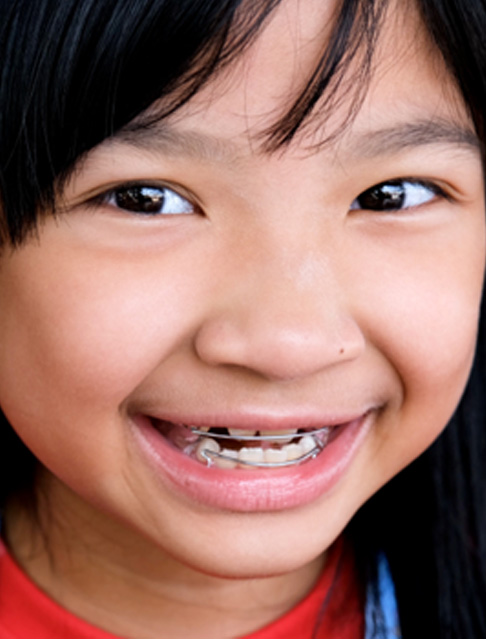Use the Arrows to Explore Our Services
How Phase 1 Orthodontics Works

Tailored specifically to children who have a mix of primary and permanent teeth, Phase 1 Orthodontic Treatment
can include everything from an expander and space maintainer to specialized braces. Typically, the length of
treatment is around 10 to 14 months. However, the exact time will ultimately depend on a few factors, including
the orthodontic issues we need to address as well as how severe they are. Across the board, the goal is to help
prevent issues from developing that could negatively impact your child’s confidence, oral health, and
bite.
Who is a Good Candidate for Phase 1 Orthodontics?

Although not every child needs Phase 1 Orthodontics, others would significantly benefit from this treatment.
That’s why it’s so important to bring your child in for a consultation! During this visit, our
Marana dental team can determine if they have:
-
Overcrowded teeth
-
Spaced-out teeth
-
Protruding teeth
-
A disproportionate jaw
If your child has difficulty speaking clearly, consistently breathes through their mouth, or has trouble
chewing, then they may also be candidates for Phase 1 Orthodontics.
The Benefits of Phase 1 Orthodontics

One of the most noteworthy benefits of Phase 1 Orthodontics is that it allows us to intervene while your
child’s mouth is still developing. Not only will this help us prevent certain issues from arising
altogether, but there’s a good chance that if your child needs braces in the future, their treatment
timeline will be significantly shorter. Plus, it’s easier to make changes to a patient’s teeth and
jaws while they are growing!
If your child is around the age of seven and you think they would benefit from Phase 1 Orthodontic Treatment,
then don’t hesitate to schedule an appointment with us!
Phase 1 Orthodontics FAQs

If you believe that your child could benefit from phase 1 orthodontic care, Dr. Fitzgerald and our team are
ready to consult with you. In the meantime, though, you might want to learn more about the road ahead. Below,
you will find answers to some relevant FAQs. If your specific questions are not included here, reach out to us
directly. We look forward to speaking with you!
When Does Phase 1 Orthodontics Take Place?
Phase 1 orthodontic treatment, also known as interceptive orthodontics, usually occurs when a patient is
between the ages of 6 and 9. This is the best time to start treatment because it is when most children are
starting to lose their baby teeth and developing their first permanent teeth.
During this critical stage of your child’s development, we can use specialized appliances to guide the
growth of their jaw and contribute to the health of incoming adult teeth.
Because the timing of phase 1 orthodontics is so critical, the American Association of Orthodontics
recommends that all children undergo an orthodontic checkup before they reach their seventh birthday.
What Appliances Are Used in Phase 1 Orthodontics?
Braces are sometimes a critical part of phase 1 treatment. However, other appliances are also commonly used.
For example, your child might need a space maintainer to preserve space in their dental arches after the
premature loss of a baby tooth. Or, they could need a palate expander, which widens the upper jaw. A Herbst
appliance may sometimes be used to improve bite harmony and correct imbalances in the jaw.
Following phase 1 braces or the use of other orthodontic appliances, your child may need to use a retainer.
Is Phase 1 Orthodontics Painful?
Placement of orthodontic appliances should be fairly easy and comfortable for your child. However, it is
important to remember that braces and other orthodontic devices work because they apply pressure to the oral
structures. Naturally, this can cause some discomfort.
To help your child cope, you may give them sugar-free popsicles to soothe inflamed tissues and administer
appropriate doses of pain medication. Lots of cuddles and reassurance can also be helpful!
Usually, any pain wears off a few days after an oral appliance is placed or adjusted.
Does Phase 1 Orthodontics Affect Diet & Nutrition?
If your child has a removable orthodontic appliance, they should take it out of their mouth at mealtimes. It
will not affect their ability to eat a wide variety of foods.
If your child’s appliance is fixed in their mouth, they may need to avoid certain foods, such as hard
and chewy items. For example, they might not be able to consume raw veggies, pizza crust, or certain types
of meat. Our team can provide detailed dietary instructions to promote the success of your child’s
treatment.


